Community Health Sciences Faculty
Faculty Bios
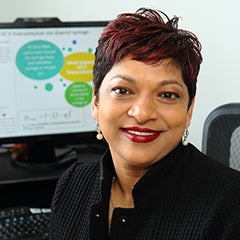
Basmattee Boodram, PhD, associate professor of community health sciences, focuses on opioid misuse epidemiology among at-risk populations, including non-urban youth. Her research has elucidated factors driving heroin injection drug use and has developed and implemented a linkage to care intervention for persons who inject drugs. She is currently leading two National Institutes of Health grants in this area, including a study of contextual risk factors for Hepatitis C among young persons who inject drugs and a computational discovery of effective Hepatitis C intervention strategies.
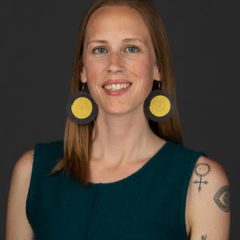
Leslie Carnahan, PhD ’20, MPH ’12, research assistant professor of community health sciences, is an expert on health disparity populations. Her work is focused on understanding how the quality, structures, and types of social factors (community-level, network, and interpersonal) contribute to differences in survival and quality of life outcomes among cancer survivors and caregiver. She is also engaged in a number of state-wide evaluations for cancer prevention and health promotion programs in Illinois.
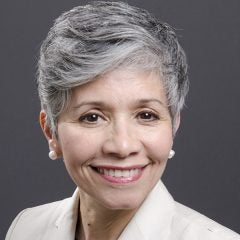
Amparo Castillo, MD, PhD ’15, is the co-director of recruitment, retention and community engagement programs with the Center for Clinical and Translational Science at UIC. She provides education, training and consultations on evidence-based participant engagement approaches across a broad range of community and clinical research studies. As a doctoral candidate in Community Health Sciences at SPH, Castillo conducted intervention research using Tai Chi for glycemic control and stress reduction among Latino older adults. Her current interests continue to address health disparities by implementing health education interventions, and facilitating the training and capacity building of community health workers.
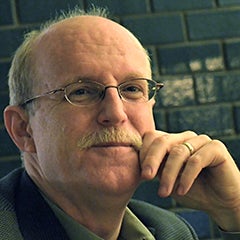
David DuBois, PhD, associate dean for research and professor of community health sciences, is an expert on mentoring relationships and self-esteem development for school-age children and adolescents as well as the evaluation of programs for these age groups. He studies mentoring and self-esteem promotion interventions that are provided to youth in schools and other parts of the community. His research has shown that these types of programs can promote resilience and holistic positive development, particularly for youth from under-resourced families and communities.
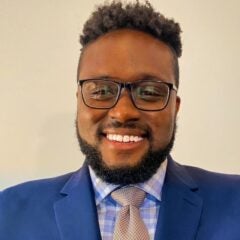
Raphael Florestal-Kevelier, PhD, clinical assistant professor of community health sciences, focuses on the well-being of university students, with an emphasis on its intersections with students’ academic, professional and personal success. Within higher education, his research and practice pay attention to advancing health equity in university contexts, cultivating health promoting campus environments, and the academic and social experiences of Black queer and transgender students. He serves as assistant vice chancellor for student health and wellness within the UIC Office of Student Affairs and has the privilege of serving on the board of directors of the American College Health Association.
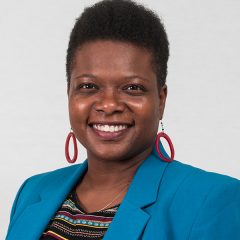
Brenikki Floyd, PhD is a clinical assistant professor of community health sciences and a junior faculty fellow in the UIC Center of Excellence in Maternal and Child Health. She has years of experience in health communication, community-based participatory research, implementation and dissemination science and program evaluation. Dr. Floyd’s research focuses on the application of health communication strategies in community-based and health systems settings to improve health outcomes among racial and sexual minority populations, particularly adolescents, women and LGBTQ+ populations.
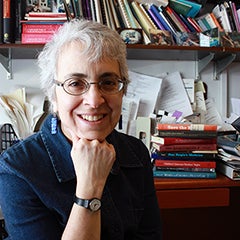
Arden Handler, PhD, professor of community health sciences, focuses on the exploration of factors that increase inequities in adverse pregnancy outcomes and examination of the ways in which the health care delivery system, particularly prenatal care, perinatal care, postpartum care, and preconception, interconception and well-woman healthcare can ameliorate these inequities.
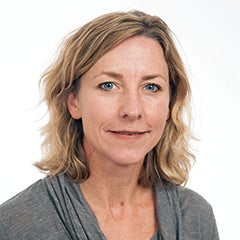
Jennifer Hebert-Beirne, PhD, associate professor of community health sciences and assistant dean for community engagement, partners with stakeholders in Chicago community neighborhoods to explore how to build community health capacity to promote health in high hardship neighborhoods. This involves multilevel approaches to addressing issues relating to people, places and insuring equitable opportunity (schools, work, transportation, health care, child care). Her work includes leadership on the Community Engagement Core of the ChicAgo Center for Health and EnvironmenT (CACHET) working in partnership with the Southeast Environmental Task Force on the development of a computer application to track community identified perceived environmental hazards. This inventory will be used to advocate of policy, systems and environmental change strategies to fight environmental racism in Chicago.
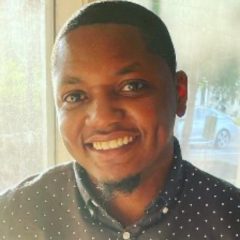
Kelechi Ibe-Lamberts, PhD, clinical associate professor of community health sciences, teaches and researches health behaviors, health disparities and health outcomes among culturally diverse populations. His research work specifically involves matters related to refugee/immigrant health and the development of transnational ties among Black immigrants. He identifies as a 1.5 generation Transnational Nigerian American. Born in Lagos, Nigeria, he immigrated to the United States at the age of 8, where he grew up in Chicago, Illinois. He continued his postdoctoral training at the University of Florida until 2018. Additionally, he serves as the Chair for the APHA Caucus on Refugee and Immigrant Health and also hosts a podcast titled “My Black is Transnational.”

Mary Ellen Mackesy-Amiti, PhD, focuses her research on HIV and hepatitis C risk among drug users, mental health of people who use drugs, suicide and overdose risk, and behavioral interventions for people who inject drugs. She is currently leading a study to test the efficacy of a peer education intervention for Tajik migrant workers who inject drugs in Moscow, a population at high risk for HIV and hepatitis C infection. She is also a co-investigator on a study of contextual risks for HCV among young people who inject drugs in the Chicago metro area.
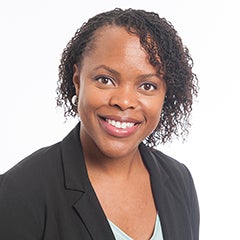
Uchechi Mitchell, PhD, assistant professor of community health sciences, focuses on racial/ethnic disparities in the health and wellbeing of older adults. She uses data from large, national surveys to identify the pathways leading to disparities in psychosocial outcomes (e.g., hopelessness) and biomarkers of physiological functioning (e.g., allostatic load, inflammation). Her research highlights the role of stress, social support and coping in maintaining health and important health resources, like consumer technology.
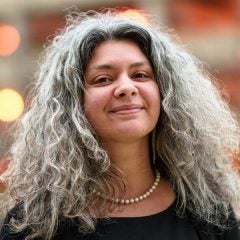
Yamilé Molina, PhD, associate professor of community health sciences, highlights the strengths of and available opportunities for marginalized and resilient populations. They focus on women’s health in the context of disparities in breast cancer, HIV, and mental health. Their research details needs and experiences of LGBTQ -identified people of color, with foci in stigma, coping, mental health, and health behaviors. Finally, they research financial and social network factors in the context of cancer disparities research, including observational and intervention studies.
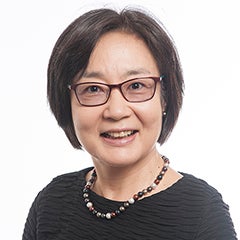
Naoko Muramatsu, PhD, professor of community health sciences, is an expert on home and community-based services, caregiving and the workforce serving the aging. She is passionate about improving the well-being of aging populations and the quality of long-term care systems. Her research focuses on understanding how place impacts aging, health, work, and caregiving experiences of diverse populations nationally and globally. Her current research develops cost-effective, sustainable community-based health promotion programs in partnership with older adults, caregivers, community-based organizations, and multidisciplinary research teams. Her teaching interests include aging, health, and health care, and research methods.
Nadine Peacock, PhD, associate dean for diversity and inclusion and associate professor of community health sciences, is a qualitative and mixed-methods researcher with a background in anthropology. She has focused on public health interventions to promote safe infant sleep, pregnancy intentions among African American women and community college students. In these areas, she explores racial and ethnic disparities in sleep-related infant death and in rates of unintended pregnancy. Globally, she has conducted research in sub-Saharan Africa on women’s work, energetics and ovarian function, and HIV/STI risk behaviors of young women.

Jessica Rothstein, PhD, clinical assistant professor of community health sciences, is a a social and behavioral scientist who uses qualitative and quantitative methods to improve child nutrition, health, and development among vulnerable populations. In particular, she focuses on understanding and addressing the institutional and socio-barriers to optimal breastfeeding practices, improving early child development through feasible home-based interventions and the potential and scalability of mobile health/digital health technologies to promote behavior change. Much of her research to date has taken place in Peru and Tanzania. She is currently working on two studies related to breastfeeding promotion in the U.S., including an evaluation of an outpatient breastfeeding support model in a federally qualified health center.

Benjamin Shaw, PhD, division director of community health sciences, focuses on improving the health, well-being and independence of older adults. Findings from his work have helped to increase awareness of how psychosocial factors influence the health of aging populations, and as a result, have helped to strengthen the scientific basis for the development of new interventions and policies aimed at promoting healthy aging through targeting individuals’ behavioral, psychological and social contexts.
Alisa Velonis, PhD, associate professor of community health sciences, works toward solution-focused responses to intimate partner and gender-based violence. Much of her current work aims to improve health care systems’ ability to identify and respond to partner violence, especially through the use of implementation science and mobile technology, and demonstrates the importance of investing in the early stages of implementation readiness to create successful screening and response programs. Her teaching interests include reproductive health, gender-based violence, realist methodology, community health assessment and program evaluation.
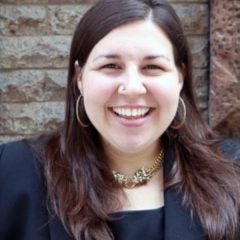
Leslie Williams, PhD, assistant professor of community health sciences, focuses on predictors and interventions to prevent HIV-related and substance use-related harms, and on describing and addressing disparities and inequities in HIV and substance use care access and outcomes among populations of color, populations with limited access to health services, and populations burdened by intersectional stigma. Her work has a particular focus on understanding stigma as a setting-level phenomenon, including its relationship to HIV and substance use-related outcomes, its relationship to health service and/or intervention uptake and access, and the development and evaluation of interventions to reduce and address it.